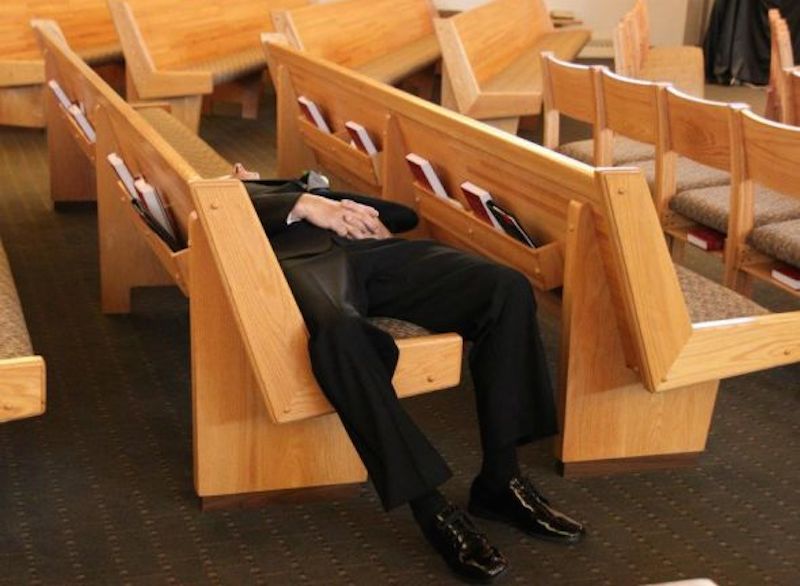Fully conscious, active participation

Today I would like to reflect a little more on the development of liturgy following the Second Vatican Council. In the Constitution on the Sacred Liturgy (“Sacrosanctum Concilium“), the Council called for the laity to have “fully conscious, and active participation” in the liturgical celebration.

As someone who grew in the post-concilliar Church, I have often felt that there was an attempt to respond to this call of the Council by simply giving the laity as many jobs as possible. Tasks previously performed by priests and deacons in the Liturgy were now given to those who sat in the pews.
While I appreciate what was being attempted, I have recently been thinking that the implementation of the Council’s teaching contained rather flawed logic. After all, if “fully conscious, and active participation” necessitates that I have some kind of liturgical role at Mass, what about those who don’t get assigned a job that week? There are only so many things that need doing! We can’t have everybody read the Readings or bring up the gifts! If participation requires a job, does that mean that those without a job are not participating in the Liturgy? Obviously not.
Mother Bates
I grew up in a musical household. I played the trumpet, but my sister Helen was the one with real musical talent, excelling in both the piano and violin. Like most schools, my sister’s school often had end of term concerts. I was recently reminded of one such concert which took place towards the end of my sister’s schooling. She had been working on a particular piece for months, since it was not only the work she was to perform that night, but it was also the main piece for her music board exam a couple of weeks later.
My Dad was out of the country so I accompanied my mother to see her perform. When it came time for my sister to play, Mum was a little agitated. She knew that my sister’s performance was a big deal and that it would have a big impact on her confidence going forward into the exam. I squeezed Mum’s hand and gave her a big smile.
As my sister began playing, my mother was right there with her, note for note. Mum knew that piece thoroughly, having heard it repeatedly during the preceding months of rehearsal at home. Mum knew the parts of it my sister liked and the parts which she sometimes found difficult. As Helen journeyed through the piece, my mother journeyed with her. I could always tell when my sister was approaching one of the tricky parts of the piece, as my mother’s grip on my hand grew to herculean strength.
As the applause began and I tried to regain circulation in my right hand, my mother’s face flushed with emotion, flooded with a mixture of joy and relief. During the entire experience, my mother may have been sitting next to me in the audience, but really she was with my sister on the stage. That’s where her entire focus was: spirit, heart and mind. For the eight minutes or so of my sister’s performance, my mother’s participation in the music could not have been more “full” or “active”.
Mother Mary
I often find that when I pray the Stations of the Cross, my mind is constantly drawn to think of another mother, Blessed Mary. Although the Scriptures doesn’t record her saying a word, she was with her Son every step on His way to Calvary.
During that terrible journey, there was nothing Mary could do. There was no job she could get on with. All she could do was be present with the Son whom she loved so dearly. Although it was Jesus being physically tortured, she no doubt suffered along with Him, participating in His Passion. As the whip cracked across His back and nails were driven into His hands, Mary was there. The “sword” which had been spoken of by Simeon years before slowly piecing her heart.
Mother Church
The Fathers of the Second Vatican Council wanted the laity to be fully involved in the celebration of the Mass. While liturgical reform can have a great impact on lay engagement, I think this is actually only a small part of the story.
Having “full, active participation” in the Mass does not require me to be assigned a job. It is possible for me to be fully involved in the Mass even if I don’t read a single bidding prayer or take up any gift in the Offertory.
Meaningful participation in the Mass simply requires love and understanding. The more we can do to foster love of Jesus, love of the Eucharist and understanding of the Liturgy, the greater will be the participation of the laity in the Eucharistic celebration, so that when the priest says “Lift up your hearts” we can all truly say “We lift them up to the Lord!”